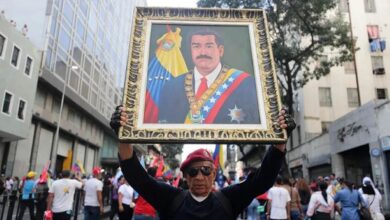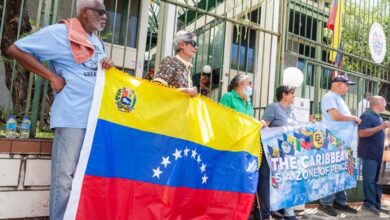They’re back: some TV shows of our childhood return!
Listen to this article
The return of 'Are You Afraid of the Dark' and 'Drake and Josh' made us remember those old TV shows that we spent evenings watching on television

The most recent news for those of us who grew up watching Nickelódeon and Fox Kids came last week with the announcement of the return of two of our favorite shows: Are You Afraid of the Dark and Drake & Josh. This news reminds us of our childhood and how far in time we are from series that slowly disappeared from the screen.
Leer en español: ¡Vuelven los programas de nuestra infancia!
Are You Afraid of the Dark
At night by Nickelodeon, surely this program terrified us and now it will return in October of this year turned into a miniseries. Both versions are about a group of friends who gather in the middle of the darkness and each one tells a horror story. Its nineties cast included the performance of recognized actors of our days like Ryan Gosling and had more than 90 episodes.
Thats not all. Are You Afraid of the Dark will return in a double dose: near the same date an adapted film of the same show will be released. With the same name, the film promises to be as terrifying as it was before, as it also has Gary Dauberman as screenwriter, the author of It, Annabelle and The Nun's scripts.
You may be interested: Jon Snow and other 6 characters that affected their interpreters
Drake & Josh
The funny step-brothers Drake and Josh, who could not be more opposite, were part of our afternoons for many years. Afterward, the program began to air on Nick at Nite, a section of Nick on the nights where they transmitted their old shows, and there we began to realize that we had already grown. So that we finally accept being an adult, after 15 years, these two brothers will return to television.
Much was speculated about it until Drake Bell, who played Drake, confirmed that the brothers would be back. "We're working on something, I'm excited. I think we have a great idea. It's going to be a lot more creative, a lot more attractive than, you know, university years or something like that. We knew that if we were ever going to come back, it had to be something good," Bell said during a red carpet. For now, this is the only thing we know, because we still do not know the release date, name or plot of the new show.
Kenan and Kel
Who does not remember Kel and his love for orange soda? or how careless he was in front of Kenan's dad? This is undoubtedly one of the shows we remember most fondly of Nickelodeon and, although it does not have or will have a remake, it was worth remembering.
These two friends made us laugh with their adventures and, above all, because of Kel's clumsiness and Kenan's crazy ideas that always ended in some problem. Now, we miss those old times in which a red curtain appeared and we knew that some story was about to surprise us.
Goosebumps
Another horror series as Are You Afraid of the Dark; ghosts, monsters and all kinds of paranormal creatures were part of this program that we watched during the nineties in the extinct Fox Kids channel. Although there are few memories of the channel and the program, we surely remember the green and monstrous lyrics.
Digimon and other Japanese animated series
Like Yu Gi Oh and many others, Digimon also marked our childhood. These series went so far that they were not only part of television but also of card games that reached important championships or games that were part of our recess. This type of animated programs from Asia counted, in its distinctive way, on battles with fictitious creatures.
LatinAmerican Post | Juliana Suárez
Translated from "¡Vuelven los programas de nuestra infancia!"





